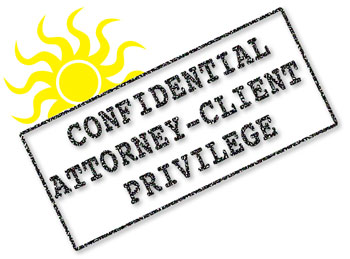Federal District Court Rules That Communications with Third-Party Litigation Funders Can Be Protected by Attorney-Client Privilege
A recent federal district court decision extends a powerful protection to communications between a third-party litigation funding company and the attorneys for the litigant who receives funding. The attorney-client privilege protects communications between lawyers and their clients, preventing any opposing party from discovering the substance of those communications. Some commentators have argued that the privilege can be destroyed if lawyers share confidential information with a litigation funding company, but this decision undermines that argument and makes it easier for litigation funders to work with litigants.
The attorney-client privilege exists to make it easier for attorneys to communicate with their clients, protecting communications between the two from any disclosure. Under the work-product doctrine, which is related to the attorney-client privilege, the privilege also protects work that the attorney does in connection with the preparation of a case for litigation, even when that work involves third-parties, such as witnesses or experts.
Litigation financing companies often need to communicate about a case with the attorney for a litigant who seeks funding. The financing company needs an insider’s viewpoint to be able to assess the prospects for success; so they obtain information about the case from the attorney who is preparing it. In theory, this communication could waive the privilege that protects the attorney’s mental impressions and legal theories about the case.
But a federal district court in Delaware has rejected that theory in an intellectual property dispute. In Ioengine, LLC v. Interactive Media Corp., Ioengine sought litigation financing, and its opponent in the case submitted a discovery request for seventy documents prepared by Ioengine’s attorney. Ioengine resisted the request, and the district court ruled that the documents were privileged, relying on opinions from federal district courts in Texas and Pennsylvania, which addressed similar discovery issues.
Alongside the opinions of the Texas and Pennsylvania courts, the Delaware decision provides a foundation for arguing that obtaining litigation financing is part of the process of preparing for a litigation matter, so that communications between an attorney and prospective investor are on the same footing as communications between the attorney and an expert or a witness. If other courts agree, it will be harder to use discovery as an instrument for harassing the parties who obtain litigation financing.
Works Cited:
Order of August 3, 2016, Ioengine, LLC v. Interactive Media Corp., Case No. 14-1571-GMS (D. Del.), available at http://www.delawareiplaw.com/files/2016/08/IOENGINE-14-1571.pdf.

